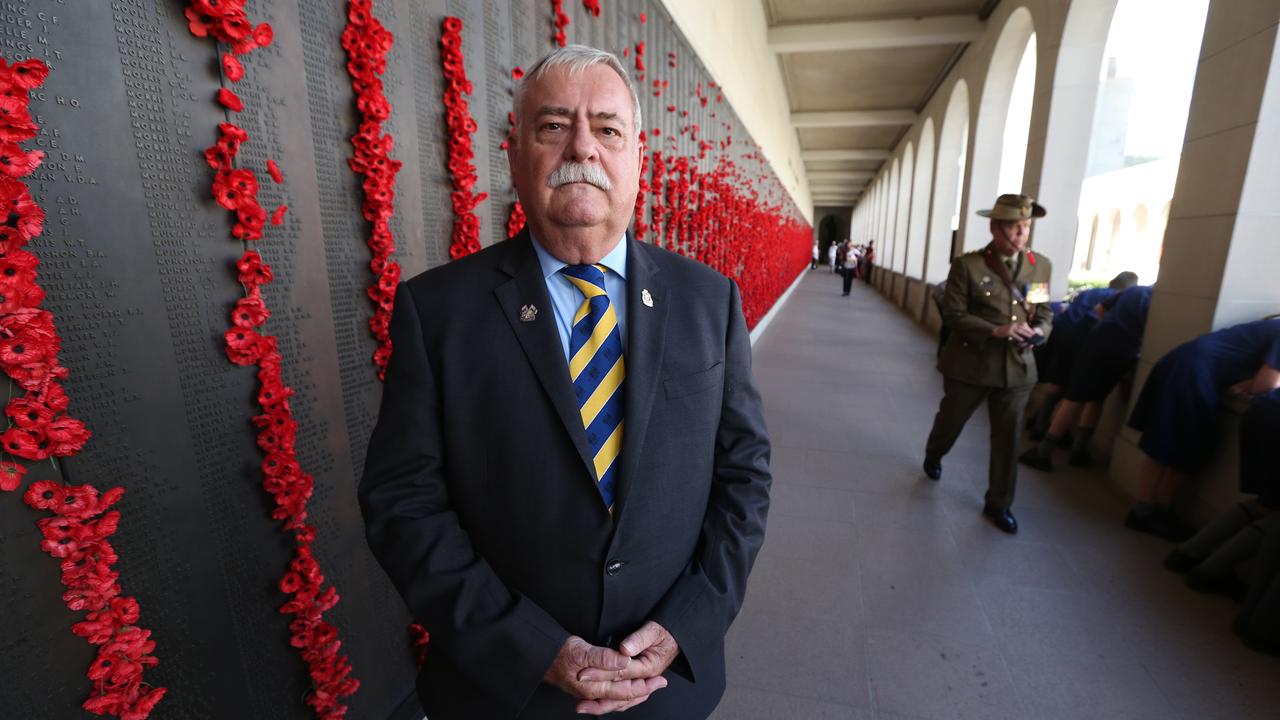The abiding pain of the war widow, from one who knows
Gwen Cherne lost her soldier husband to suicide. Now she is dedicated to helping war widows and veterans.

When Gwen Cherne was working for aid organisations in Afghanistan, she could not have foreseen that the trauma and stress of living under constant threat would prepare her for her current, peaceful life in Australia.
For years, the now 40-year-old mother of three worked in Kandahar, Jalalabad and other high-risk areas. She met her husband, Second Commando Regiment sergeant Peter Cafe, when he worked as her security team.
“I worked inside and outside of the fence between 2006 and 2010,” she said.
“The stress of living in a war zone — I had undiagnosed post-traumatic stress. I did therapy for several months when I got back. It wasn’t a particular event, it was the constant level of stress. People wanted me dead, and I couldn’t figure out who.”
In February last year, Ms Cherne’s life was shattered when her husband, a veteran of East Timor, Cambodia, Iraq and Afghanistan, took his own life. It devastated her, but set her on a course helping war widows and veterans with mental and physical health issues.
She is now an ambassador for the upcoming Sydney Invictus Games, a multi-sport event for wounded, injured or sick armed service personnel, which will take place on October 20-27.
“My husband did not have a high opinion of those who suicided,” she said. “To end up as one of those statistics … he taught mental health first aid.
“He knew all the support services yet he thought he was getting out of the way. Instead, he left a huge traumatic hole. Sport was his release and he wasn’t doing nearly enough. My role is to say how important this is.”
Ms Cherne’s previous work in policy and training program development — and her experience of war — has become part of her life as a board member of the War Widows’ Guild of Australia.
“There are 60,000 widows in Australia,” she said.
“My role is to raise the profile of the families and the importance of the families for soldiers. Our serving men and women can come home with mental war wounds and we need to acknowledge that. That does not mean they are cowards or weak.
“I’ve gone from the pre, the during, the after of war. The family breakdowns, the mental health issues. We send people to help stabilise other communities and yet we’re fraying part of the community. There were 85 suicides last year. What is going on?”
The transition from service to the workforce is poorly understood by those outside the armed services, she said. “I don’t think people understand the skills that veterans have. People think they just shot a gun. Actually, these people are really good at managing safety and risk, strategic thinking and planning.”



To join the conversation, please log in. Don't have an account? Register
Join the conversation, you are commenting as Logout